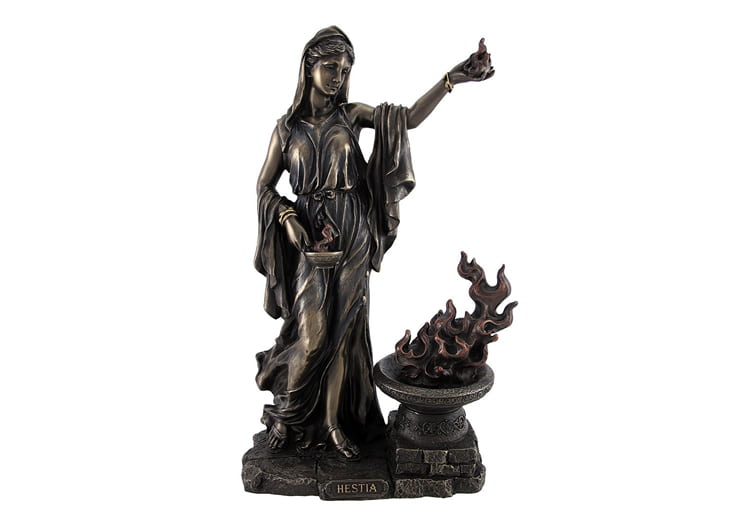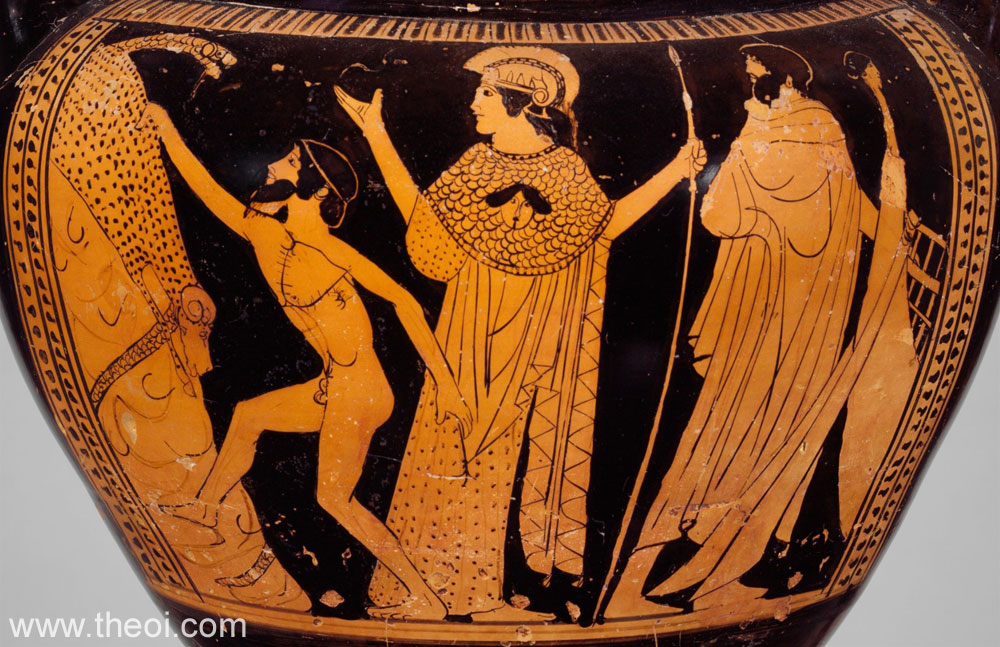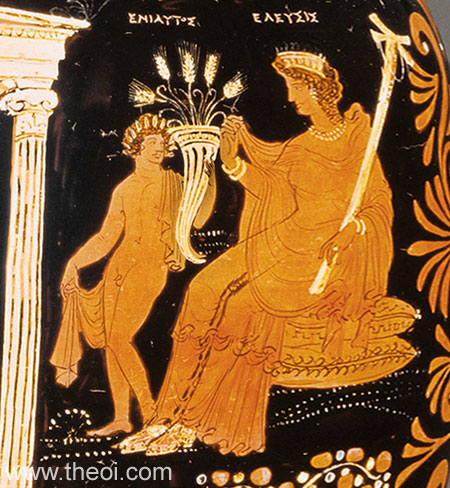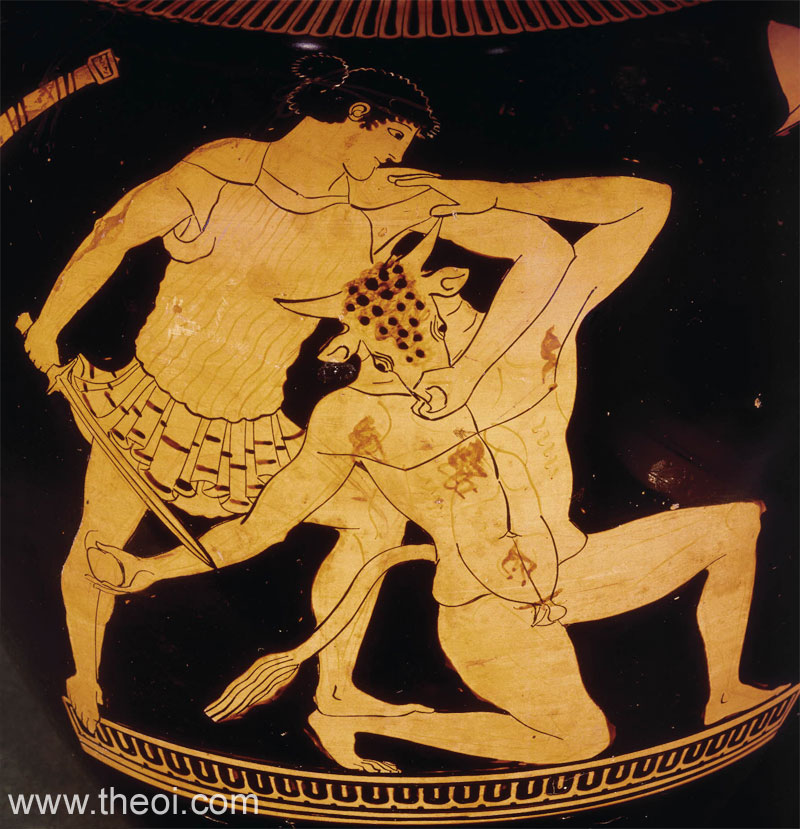Before the age of the Olympians in Greek mythology, there were the Titans. The Titans ruled in the universe during the Golden Age. One of the Twelve Titans was Atlas. He was the son of Titan god Iapetus and Titan goddess Clymene. The Titans ruled the universe until Zeus, son of fellow Titan Cronus, banded together with the Olympians to overthrow his father and battle the Titans for the universe.
The Titan War
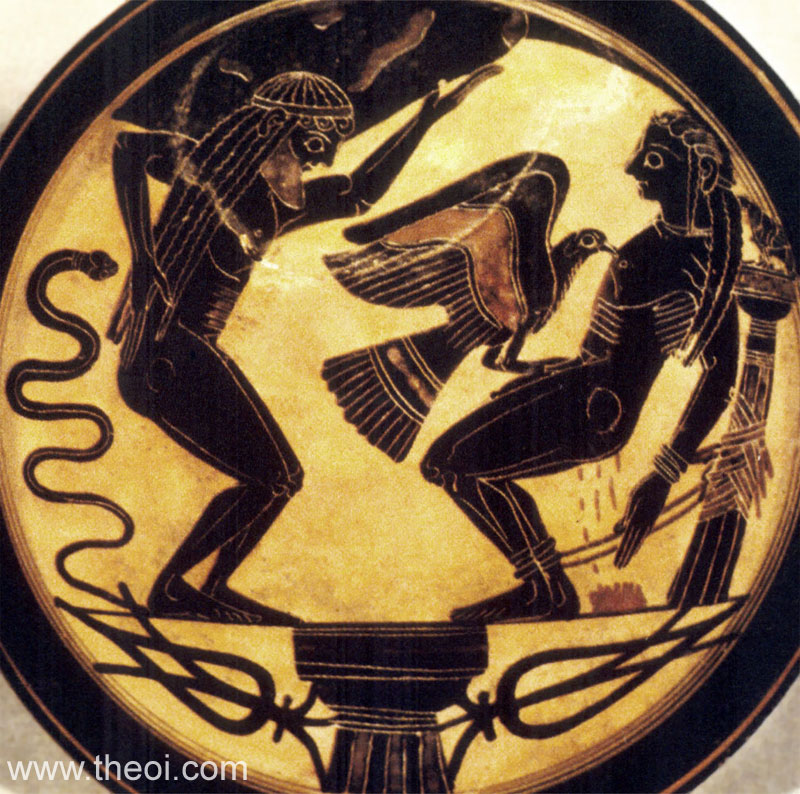
During the Titan War, the Titans battled the Olympians for control of the universe. The Olympians included Greek gods Zeus, Poseidon, and Hades, while the Titans included Greek gods Cronus, Atlas, and Prometheus.
During the Titan War, Atlas sided with his fellow Titans in battle to defeat the Olympians. The Titans lost the war, and the Olympians banished the Titans to Tartarus. Tartarus was a deep abyss used as a prison for the Titan gods, and most of the Titans would spend eternity there.
The Fate of Atlas
Unlike his fellow Titans, Atlas had a different punishment. Instead of being banished to Tartarus, Zeus enslaved Atlas to holding up the earth on his shoulders for all eternity. This was because Zeus wanted Atlas to keep Gaia from forming the primordial bond with Tartarus. Atlas did not like holding up the earth on his shoulders, and he tried to get out of it many times.
The Myth of Atlas and Perseus
The myth of Atlas and Perseus tells the story of Perseus turning Atlas to stone using Medusa’s head.
One day, Perseus was on his way home after beheading Medusa. He made it to the end of the earth and came upon Atlas holding up the earth. Perseus asked Atlas for shelter from his long journey. Atlas was told in an ancient prophecy that someone would come for his sacred golden apples, so Atlas turned Perseus away.
Perseus was angry that Atlas would not provide him shelter during his long journey, so he took out Medusa’s head from his satchel and showed it to Atlas. Atlas looked into the eyes of the beheaded Medusa and was turned to stone immediately.
The Myth of Hercules and Atlas
Another myth in Greek mythology tells the story of Hercules and his 12 labors.
When Hercules was married to Megara, he had three sons. Hera, wife of Zeus, tried to destroy Hercules numerous times because Hercules was a constant reminder of her husband Zeus’s unfaithful affair with a mortal woman Alcmene. This mortal woman gave birth to Zeus’s son Hercules, and his existence was a constant reminder to Hera of Zeus’s affair. Therefore, she tried to destroy him many times.
One day, Hera sent madness upon Hercules and made him believe that he needed to kill his wife and children because he thought they were someone else. Once he killed them, he realized what he had done and was struck with grief. Hercules sought the advice of Apollo to try to make things right. Apollo told Hercules that he should visit King Eurystheus and become his slave.
When Hercules visited King Eurystheus, he told Hercules he would need to complete 12 difficult labors for him. One of those labors was to steal the golden apples that belonged to Zeus. These apples were in a garden and guarded by a hundred-headed dragon and the Hesperides sea nymphs. Hercules did not know how he was going to get past these guards to steal the golden apples, so he sought the help of Atlas at the advice of Prometheus.
Hercules visited Atlas and asked proposed a deal: if Atlas fetched the golden apples, Hercules would hold up the earth. Atlas hated holding up the earth, so he willfully agreed. After Atlas had retrieved the apples, he returned to Hercules and told him that he would take the apples to King Eurystheus himself. After all, Atlas did not want to return to holding up the earth.
Hercules could not let Atlas do that but also didn’t know how to give him back the earth, so Hercules came up with a plan. Hercules asked Atlas to take the earth for a moment while he placed some soft padding on his shoulders to help him hold the earth. When Atlas agreed and took the earth back on his shoulders, Hercules grabbed the apples and left Atlas at the edge of the earth holding the world like he had done for so many years before.
